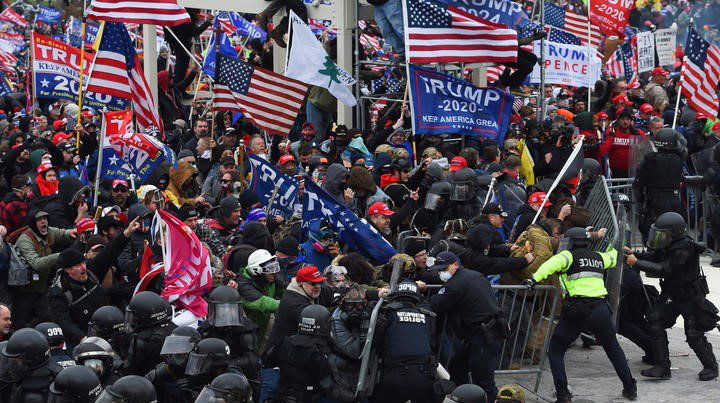
A federal judge has rejected Trump’s bid to block investigations on the January 6 attack on the US Capitol and his role in the deadly riot, which led to at least 138 injured police officers and five deaths.
Two police officers who responded to the attack committed suicide later that month. The attempt was to block the House select committee from obtaining White House records on the attack.
The ruling was decided on Tuesday night by Judge Tanya Chutkan of the federal district court in the District of Columbia. This decision is a major setback for the former President; who has been trying to cover his role in the attack arguing that the records are protected by executive privilege.
Trump immediately appealed the ruling to the U.S Court of Appeals for the D.C. Circuit. However, if the ruling stands, it could pave the way to the White House documents, stored in the National Archives, and be handed over as soon as Friday. This move was permitted by the current President, Joe Biden, who refused to assert any executive privilege over the documents.
Judge Tanya Chutkan said that Trump is “unlikely to succeed on the merits of his claims or suffer irreparable harm” and “a balance of the equities and public interest bear against” granting his request. The order came less than one day after she denied an emergency bid made by Trump lawyers to stop the National Archives from giving the documents of the Jan 6 attack. She explained further by stating that Trump’s claim that he was owed executive privilege was misplaced. She said, “His position that he may override the express will of the executive branch appears to be premised on the notion that his executive power ‘exists in perpetuity “.
“But presidents are not kings, and [the] plaintiff is not President. He retains the right to assert that his records are privileged, but the incumbent president ‘is not constitutionally obliged to honor’ that assertion.”
A few hours earlier on Tuesday, the committee issued another 10 subpoenas of Trump allies, including the former senior adviser Stephen Miller and former White House press secretary Kayleigh McEanny.
Miller rose quickly in the Trump administration, from a junior Senate staffer to the President’s adviser and notable White House spokesperson. He was the main person involved in setting the rules of Trump’s hardline immigration policies, which included a ban on migrants from Muslim countries.
McEanny on the other hand, currently an on-air commentator for Fox News, was Trump’s final press secretary, often clashing with the media.
Taylor Budowich, a spokesperson for Trump, tweeted after the ruling, “The battle to defend Executive Privilege for Presidents past, present & future—from its outset—was destined to be decided by the Appellate Courts”. He also said, “Trump remains committed to defending the Constitution & the Office of the Presidency, & will be seeing this process through.”
The White House agreed with the ruling, stating that the decision was consistent with President Joe Biden’s views on investigating the Jan 6 capitol attack and that full accounting is “absolutely vital”.
White House spokesperson Michael Gwin said that the administration “will continue to work expeditiously with the Select Committee as it performs its important duty on behalf of the Nation to uncover the facts surrounding the gravest threat to our democracy and constitution in modern history”
Jesse Binnall, Trump’s attorney, has accused the select Committee of harassing the former President through a “vexatious, illegal fishing expedition.” Binnall filed an emergency request to issue a blockage of the release of the disputed records and told Chutkan that if she decides otherwise, then Trump will “promptly” file an appeal. Binnall wrote in the request, “If injunctive relief is refused, the National Archives and Records Administration will produce records before judicial review is complete and before President Trump has had the opportunity to be fully and fairly heard.”
To this Chutkan denied the request based on procedural grounds, calling it “premature” in the absence of a court order.
